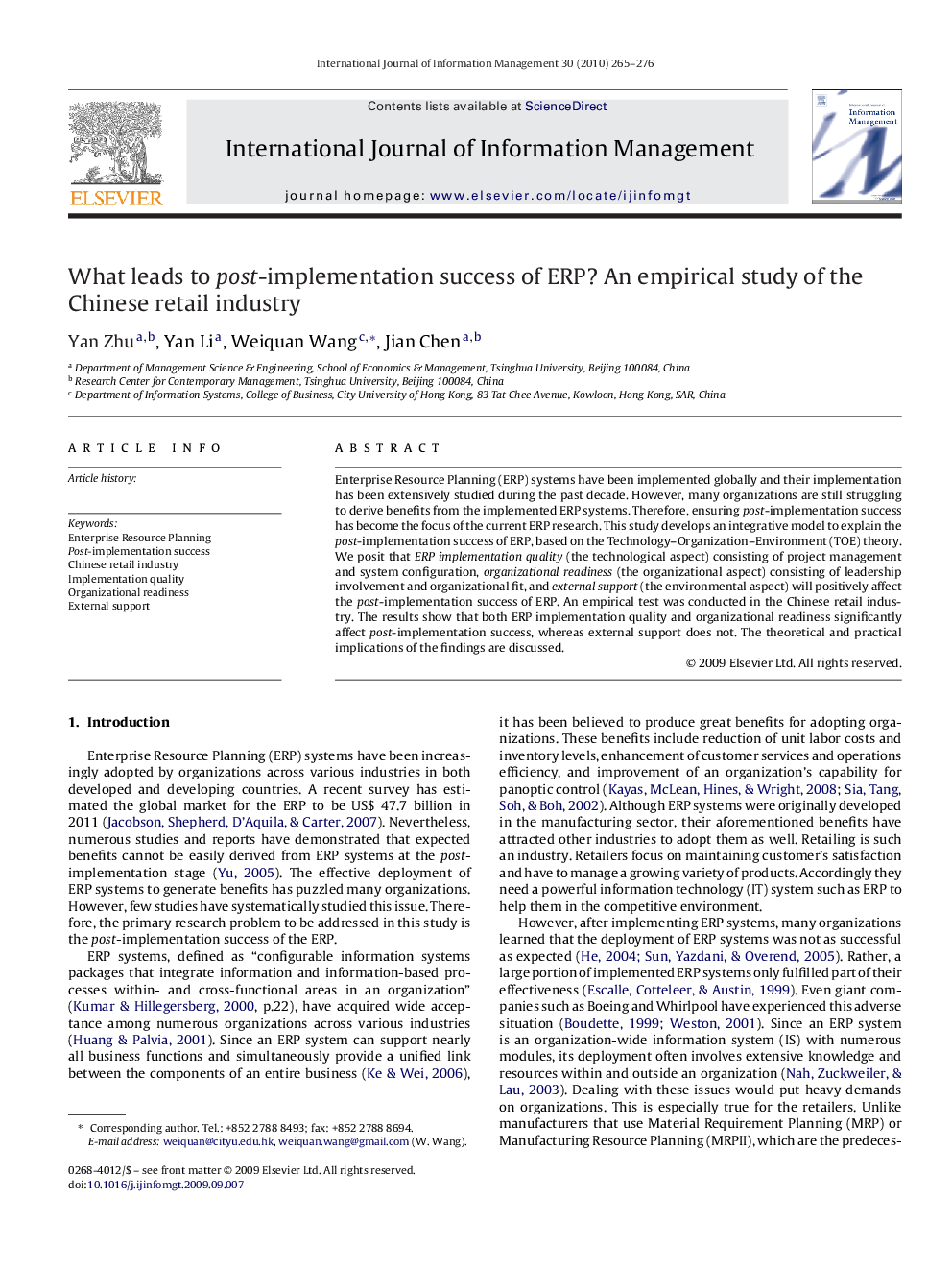| Article ID | Journal | Published Year | Pages | File Type |
|---|---|---|---|---|
| 1026099 | International Journal of Information Management | 2010 | 12 Pages |
Abstract
Enterprise Resource Planning (ERP) systems have been implemented globally and their implementation has been extensively studied during the past decade. However, many organizations are still struggling to derive benefits from the implemented ERP systems. Therefore, ensuring post-implementation success has become the focus of the current ERP research. This study develops an integrative model to explain the post-implementation success of ERP, based on the Technology–Organization–Environment (TOE) theory. We posit that ERP implementation quality (the technological aspect) consisting of project management and system configuration, organizational readiness (the organizational aspect) consisting of leadership involvement and organizational fit, and external support (the environmental aspect) will positively affect the post-implementation success of ERP. An empirical test was conducted in the Chinese retail industry. The results show that both ERP implementation quality and organizational readiness significantly affect post-implementation success, whereas external support does not. The theoretical and practical implications of the findings are discussed.
Related Topics
Social Sciences and Humanities
Business, Management and Accounting
Management Information Systems
Authors
Yan Zhu, Yan Li, Weiquan Wang, Jian Chen,
